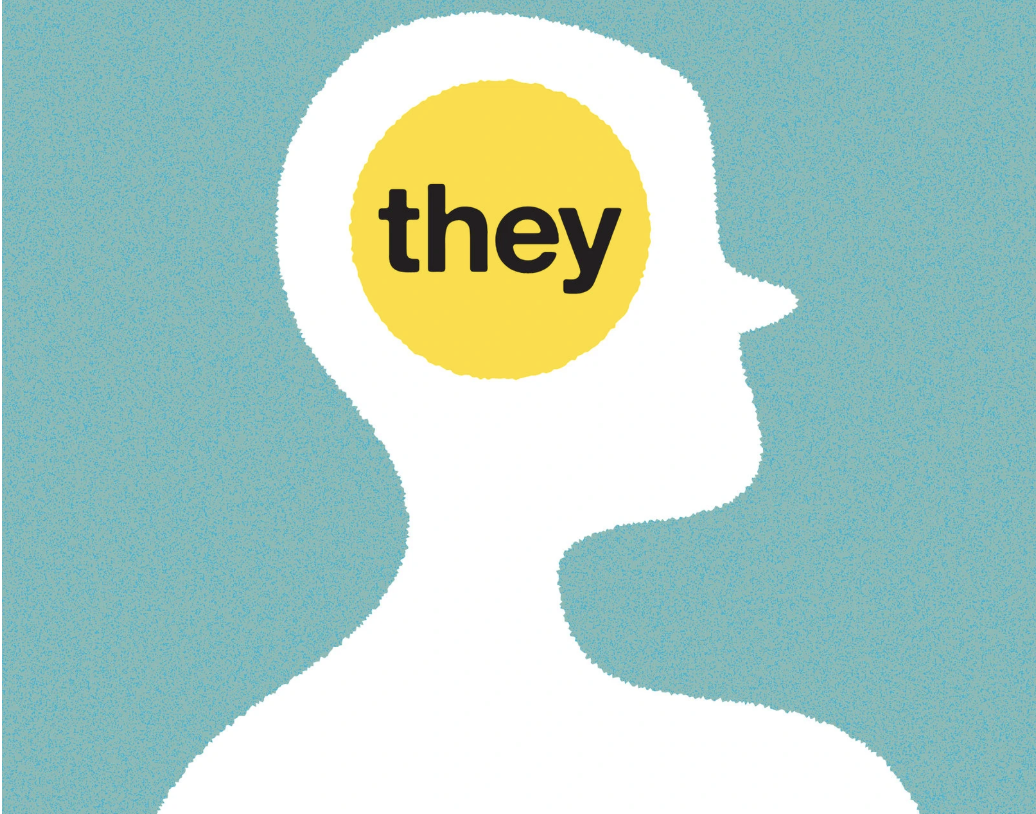At this point, the New York Times opinion section is really just a repository of inane clickbait, though the NYT brand gives it a patina of sophistication. And on Thursday, when tech columnist Farhad Manjoo published his latest column which, incidentally, had nothing to do with technology, readers could be forgiven for scoffing.
Manjoo, who is by all accounts a straight man, asked his readers to refer to him by the gender-neutral pronoun ‘they’, and suggested that they ask the same for themselves. Because it’s time to rid the world of the arbitrary and oppressive gendering of the pronouns ‘he’ and ‘she’.
The columnist opens the column by declaring himself a humble cisgender suburban dad. But that doesn’t change the fact that people ‘should’ use ‘they’ when addressing him – though he ‘won’t be offended’ if you keep referring to him as ‘he’.
I am your stereotypical, cisgender, middle-aged suburban dad. I dabble in woodworking, I take out the garbage, and I covet my neighbor’s Porsche. Though I do think men should wear makeup (it looks nice!), my tepid masculinity apparently rings loudly enough online and in person that most people guess that I go by “he” and “him.” And that’s fine; I will not be offended if you refer to me by those traditional, uselessly gendered pronouns.
But “he” is not what you should call me. If we lived in a just, rational, inclusive universe — one in which we were not all so irredeemably obsessed by the particulars of the parts dangling between our fellow humans’ legs, nor the ridiculous expectations signified by those parts about how we should act and speak and dress and feel — there would be no requirement for you to have to assume my gender just to refer to me in the common tongue.
Because when it comes down to it, there’s no advantage to using ‘he’ or ‘she’ over the singular ‘they’, Manjoo argues. And if there’s no obvious benefit, then why do we do it? Well, why do we do anything? Why keep getting out of bed in the morning. Maybe Manjoo has answers for these inscrutable questions, maybe he does.
All we know is that gendered pronouns convey important information, which is probably why we have been using them for so long.
But nevermind that. Manjoo understands if you suspect him of shallow virtue-signaling by column (after all, he does work at the NYT), but he continues to insist there are advantages, though the only one he can name is no longer having to worry about accidentally using the wrong pronoun if a person has an ambiguous name (or if they reject the gender binary).
I suspect my call will be dismissed as useless virtue-signaling, but there are several clear advantages, both linguistic and cultural, to the singular “they.” One of the main ones is that it’s ubiquitous. According to linguists who study gender and pronouns, “they” and “them” are increasingly and widely seen as legitimate ways to refer to an individual, both generically and specifically, whether you know their gender or not — as I just did right in this sentence.
“In our latest study, 90 percent of the time when people refer to a hypothetical person, they use ‘they,’” said Evan Bradley, who studies language and gender at Penn State.
But “they” is also used so commonly to refer to specific individuals that it doesn’t trip people up. The same thing isn’t true when you add a new, neutral pronoun to the language – something like “ze,” which in Bradley’s research was not recognized by many people, and when it was used, it was often taken to refer specifically to gender-nonconforming people.
For a long time, Manjoo didn’t see pronoun usage as a major issue. But then he had kids, and suddenly realized how ‘stifling’ and ‘insidious’ gender expectations are imposed on children from birth.
I think that’s too cautious; we should use “they” more freely, because language should not default to the gender binary. One truth I’ve come to understand too late in life is how thoroughly and insidiously our lives are shaped by gender norms. These expectations are felt most acutely and tragically by those who don’t conform to the standard gender binary — people who are transgender or nonbinary, most obviously.
But even for people who do mainly fit within the binary, the very idea that there is a binary is invisibly stifling. Every boy and girl feels this in small and large ways growing up; you unwittingly brush up against preferences that don’t fit within your gender expectations, and then you must learn to fight those expectations or strain to live within them.
But it was only when I had a son and a daughter of my own that I recognized how powerfully gendered constructs shape our development. From their very earliest days, my kids, fed by marketing and entertainment and (surely) their parents’ modeling, seemed to hem themselves into silly gender norms. They gravitated to boy toys and girl toys, boy colors and girl colors, boy TV shows and girl TV shows.
This was all so sad to me: I see them limiting their thoughts and their ambitions, their preferences and their identity, their very liberty, only to satisfy some collective abstraction. And there’s little prospect for escape: Gender is a ubiquitous prison for the mind, reinforced everywhere, by everyone, and only rarely questioned.
What has become of the contemporary media set when even the tech columnists are devoting their column inches to – to use Manjoo’s own words – “shallow virtue-signaling”?
via ZeroHedge News https://ift.tt/2G96lF7 Tyler Durden
